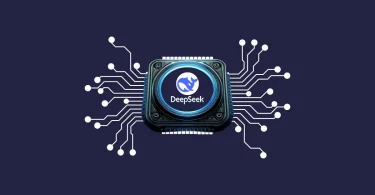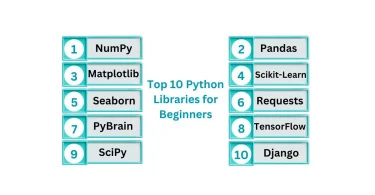The researcher’s community is discussing the limits of existing supercomputers. Researchers face challenges in conducting complex simulations, particularly in fields like chemistry. For instance, it is easy to simulate a hydrogen atom, but the simulation of more atoms and intertwined electrons becomes extremely difficult. Such calculations would take a lifetime to achieve on any regular computer, thus rendering the idea unthinkable.
Entering in marvelous quantum computers, they opens up new possibilities with quantum computing progress. The ability to simulate these equations came after years of scientist’s hard work. Superfast quantum computers have helped researchers predict how chemical reactions occur without conducting many lab tests. Suppose the revolution quantum computers will make in chemistry by allowing us to see in unimaginable ways the chemical properties.
These quantum computing ideas may even sound like dreaming, but they are just the next logical steps.
Understanding Quantum Computing:
Quantum computers are different from everyday computers. Quantum computers utilize superposition, interference and entanglement to conduct intricate calculations, substituting traditional bits with quantum bits, or qubits.
Measurement is necessary because otherwise, qubits are zero and one simultaneously. They’re comprised of quantum particles which are entangled so as to assist in computing using correlated probabilities. This widens the scope of tackling new issues such as the development of new protocols, search algorithms, as well as simulations of quantum mechanics directly. These could include the development of new drugs and other issues such as the discovery of new medicines.
Quantum Computing in Action with Business:
Numerous businesses have adopted quantum computing, with IBM partnering with major entities such as Mercedes-Benz, ExxonMobil, CERN, and Mitsubishi Chemical to integrate quantum computing and business.
Mercedes-Benz using quantum computing to make better batteries for electric vehicles. To be the world front runners in electric vehicles and to go carbon neutral by 2039, they choose quantum computers. It is very difficult to replicate what goes on inside batteries; however, using quantum computing, Mercedes-Benz can predict the chemical reactions that take place in car batteries.
Quantum algorithms allow ExxonMobil to find the most efficient shipping paths for clean fuel across the globe. This would be difficult without quantum computing because it would mean figuring out a route out of all the possibilities.
The European Organization for Nuclear Research and CERN seeks to open way to the universe. Quantum computing aids CERN in developing algorithms that enable them to comprehend different events occurring in the universe. One example, it can assist CERN in determining the trends in LHC data.
Quantum computers are investigating a critical chemical step of lithium-oxygen batteries by teams at Mitsubishi Chemical and Keio University. They design models that mimic events that occur at the sub-molecular level of a chemical reaction.
Pros and Cons:
Quantum computing is capable of completely altering or we can say transferring in the next era almost every field of life. It does this by employing a special form of computation based on probability. This creates opportunities for ultra-fast search machines, pinpoint weather predictions and advanced healthcare applications. Quantum computer simulations are ideal for simulating quantum mechanics directly, while they are very good in the applications related to handling atoms.
However, the creation of a super quantum computer is a difficult act that entails some shortcomings. It is very difficult to keep the quantum systems at absolute zero temperature as they are extremely sensitive to extreme heat or coldness. The quality of qubits, the building blocks of quantum computers, isn’t perfect, leading to inaccuracies after a certain number of instructions. Quantum computers are also expensive, with a single qubit costing up to around $10,000.
Lastly, if quantum computers are used for bad purposes, they could overtake standard information systems and encryption methods, decrypting even the most secure data. Cryptography experts will need to develop new encryption techniques to resist attacks from quantum computers.
Quantum Impact on Higher Education:
Education never gives up on looking for new ways to make headway. Many universities are getting into extensive research on quantum computing which relies on quantum properties to usher in a different computer era, complete with computers that nowadays seem impossible, super safe quantum networking and innovative quantum materials.
Researchers are using quantum applications to improve healthcare, financial transactions and security at the University of Oxford, which is known for its leadership in quantum science. They exhibited the first working quantum computer purely state nuclear magnetic resonance together with the University of York.
The Quantum Initiative in Science and Engineering at Harvard University is striving to achieve substantial advances in quantum science and engineering. According to their research, there will likely be the next quantum revolution that will rely upon the first one, which brought about global communication, GPS technology and medical advancements, such as magnetic resonance imaging.
Researchers joint Quantum Institute explores quantum system control.
The Quantum Center at UC Berkeley specializes in quantum algorithms, cryptography, information theory, control and experimental research.
Chicago Quantum Exchange focuses on developing novel approaches to quantum mechanical laws, fostering cross research group collaborations.
With respect to higher education, quantum computing will generate new jobs for future generations. These jobs will provide detailed information on the general job market growth and the need for specific skills. Machine learning may soon be subjected to quantum computing power.
Conclusion:
New opportunities open by breaking the barriers of traditional supercomputers. Quantum computing is no longer a dream, but the next natural direction of our technological evolution. It unlocks the secrets of chemistry, revolutionizes business landscapes and represents the logical continuation of our path forward. Notwithstanding these hurdles, the quantum revolution would require keeping systems at near absolute zero temperature, the perfection of qubits, as well as managing associated costs. Nevertheless, we forge on towards super-fast search facilities, high-precision meteorological forecasts and innovative medical application. The implications of quantum computing in higher education are indisputable. The future is calling for a fusion of machine learning and quantum power that will provide access to places we once believed were inaccessible. During this journey, we have reached a milestone period in which quantum development does not only define the future of our computing world but the real material life itself.




Leave a Comment